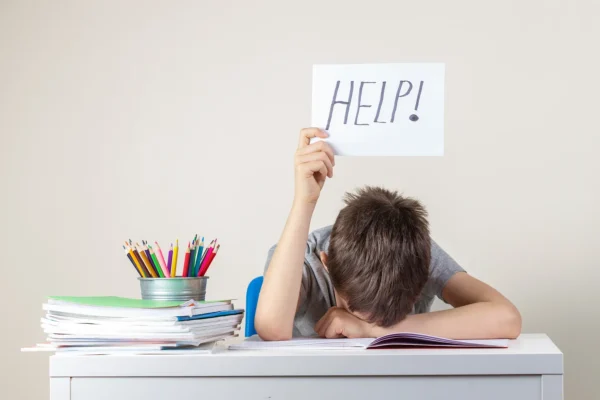As a parent, you probably expect your child to be a little fidgety, easily distracted, or daydreamy from time to time—especially when it comes to homework or chores. But when attention issues begin to interfere with learning, behavior, or daily life, it’s natural to wonder: Is this normal… or is it something more? Here’s what you need to know to help you recognize when it’s time to seek help for your child’s attention struggles.
✅ Occasional Inattention vs. Ongoing Struggles
Almost all children have moments when they seem “off task” or forgetful—especially when they’re tired, hungry, or overstimulated. However, when attention issues become a pattern rather than a phase, they can point to deeper cognitive struggles.
Signs that attention issues may be more than just normal behavior include:
- Consistent difficulty focusing even during tasks they enjoy
- Trouble following multi-step directions (even after repeated instructions)
- Frequent careless mistakes in schoolwork
- Avoidance of tasks that require sustained mental effort
- Disorganization (losing things, messy backpack or desk, forgetting assignments)
- Fidgeting or inability to stay seated when expected
- Impulsive behavior (blurting out answers, interrupting others)
- Emotional outbursts tied to frustration with focus or performance
If these behaviors are persistent, noticeable across different settings (home, school, extracurriculars), and are impacting your child’s confidence or relationships, it may be time to dig deeper.
📊 The Cognitive Connection: Attention Issues are Rooted in Cognitive Skills
What many parents don’t realize is that attention isn’t just a matter of willpower or motivation—it’s a brain skill. In fact, there are multiple types of attention, including:
- Sustained attention (the ability to stay focused over time)
- Selective attention (focusing on one thing while ignoring distractions)
- Divided attention (juggling more than one task at once by switching rapidly between multiple tasks)
These skills—along with working memory, processing speed, and executive function—can all contribute to what looks like “attention problems.” At LearningRx, we assess these cognitive skills to identify what’s really going on beneath the surface. Often, we find that what presents as attention issues is actually a cluster of weak brain skills that can be strengthened.
🚩 Red Flags That Warrant Action
Here are some specific situations where it’s wise to seek help:
- Your child’s grades are slipping, even though they’re trying hard.
- Teachers express concern about inattention or impulsivity in class.
- Your child frequently says things like, “I can’t focus,” “I’m stupid,” or “I hate school.”
- Homework takes far longer than it should and often ends in frustration or tears.
- Your child is socially struggling because of interrupting, impulsive behavior, or difficulty following conversations.
- You’ve tried common strategies—like checklists, reward charts, or tutoring—but nothing seems to help.
🧠 What You Can Do Now: Start with a Cognitive Assessment
If you’re starting to worry about your child’s attention issues, a great first step is to get a cognitive skills assessment. At LearningRx, we offer a research-based assessment that pinpoints the strengths and weaknesses that may be impacting your child’s ability to focus, learn, and thrive. From there, we create a personalized brain training program that targets and strengthens the underlying skills related to attention, memory, reasoning, and more.
Trust your gut.
If your child’s attention issues are disrupting their ability to succeed at school, maintain friendships, or feel confident, it’s worth investigating further. The earlier you understand what’s really going on in the brain, the sooner you can take steps to help.
At LearningRx, we’ve helped thousands of kids overcome attention struggles by addressing the root cause—not just the symptoms.
Ready to find out what’s really behind your child’s attention challenges?

